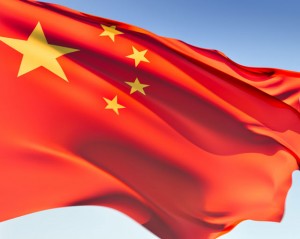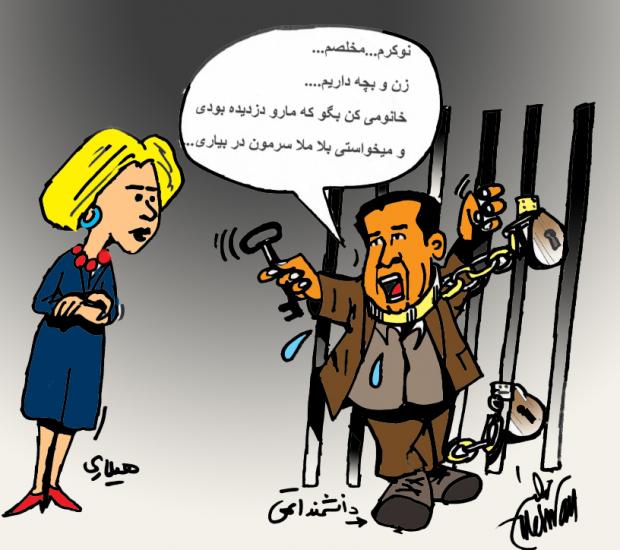Saturday
Jul312010
China This Week: South China Sea Issue; Military Drills; High-Speed Rail Plan; Sino-Russia Grid Agreement
 Saturday, July 31, 2010 at 0:01
Saturday, July 31, 2010 at 0:01  Foreign Minister Warning on South China Sea: Foreign Minister Yang Jiechi on Sunday warned other countries not to "internationalize" the territorial dispute over the South China Sea, following comments by US Secretary of State Hillary Clinton over the issue at the Association of Southeast Asian NationsRegional Forum in Vietnam.
Foreign Minister Warning on South China Sea: Foreign Minister Yang Jiechi on Sunday warned other countries not to "internationalize" the territorial dispute over the South China Sea, following comments by US Secretary of State Hillary Clinton over the issue at the Association of Southeast Asian NationsRegional Forum in Vietnam.Clinton said resolving disputes over the South China Sea was "pivotal" to regional stability and suggested an international mechanism to solve the issue.
"International practices show that the best way to resolve such disputes is for countries concerned to have direct bilateral negotiations," Yang responded. "China and some ASEAN nations have territorial and maritime rights disputes because we are neighbors. And those disputes shouldn't be viewed as ones between China and ASEAN as a whole just because the countries involved are ASEAN members."
Yang noted the Declaration on the Conduct of Parties in the South China Sea signed by China and ASEAN member countries in 2002 has helped ease regional conflicts. In the declaration, countries pledged to "exercise restraint, and not to make [the South China Sea] an international issue or multilateral issue”.
Navy Live-Ammunition Training in South China Sea: Naval units of the People's Liberation Army (PLA) conducted a large-scale live-ammunition training exercise in the South China Sea, according to a front-page report in Thursday's PLA Daily newspaper.
In the exercise, carried out on 26 July, warships and submarines from the Navy's South China Sea Fleet carried out precision strikes on surface targets by firing guided missiles, as warships conducted anti-missile air defense operations.
China Conducts Two Military Drills:The Chinese military conducted two exercises near the Yellow Sea, as the United States and South Korea engaged in a joint military drill.
On Tuesday, an army unit based at an inland province in the Jinan Military Command ferried combat forces and arms to "a coastal city" in Shandong province. Two days earlier, as Washington and Seoul began their joint exercise, the Nanjing Military Command tested a new long-range artillery rocket on land toward the Yellow Sea.
It was the first time China has carried out such a large-scale long-range artillery rocket drill.
As Washington and Seoul completed their first joint exercise on Wednesday, South Korea's Yonhap News Agency quoted a high-level military officer that the two sides will "present a joint military exercise once every month until the end of the year".
The official also said a US-South Korea drill is scheduled to take place in the Yellow Sea in September.
Communist Party in "Dialogue" with US Parties: The Communist Party of China (CPC) has scheduled a high-level dialogue with the Democratic Party and Republican Party in the US by the end of this year, Li Jun, spokesman for the International Department of the CPC Central Committee, has said.
The invitation follows the first high-level dialogue between the three main political parties when a US delegation led by former Secretary of State Madeleine Albright and former Assistant Secretary of State Richard Williamson visited China from 30 March 30 to 3 April.
China, Japan Talk on East China Sea Issue: On Tuesday, China and Japan on Tuesday conducted the first round of negotiations on the implementation of principles of consensus concerning the East China Sea.
The two sides agreed to make concerted efforts to implement the principlesand attain the common goal of turning the East China sea into a sea of "peace, cooperation and friendship".
High-speed Rail Links to be Doubled by 2012: China will spend 800 billion yuan ($120 billion) as part of an ambitious plan to double its high-speed rail network by 2012, the Ministry of Railways said on Wednesday.
The sum will be invested to lay more than 6000 km of new high-speed tracks across the country, pushing the total length of high-speed railways to 13,000 km by 2012, said Yu Bangli, chief economist with the Ministry.
He Huawu, the ministry's chief engineer, said that China will set a new record by running trains at 380 km (228 miles) per hour on the Beijing-Shanghai link, scheduled for completion before 2012.
China and Russia Sign Power-Grid Agreement: The State Grid Corporation of China has signed a framework agreement with the Russian national grid operator to extend their collaboration on grid technology, cooperation, and management.
According to Rusnews.cn, a Russian news portal, both companies will begin construction of a 500 kV, cross-border power line in the Amur region of Russia in 2011.
China to Recruit More Global Experts: Chinese Vice President Xi Jinping has said more efforts should be put into a programme for recruiting global experts, which was initiated in 2008.
By May this year, 662 people had been recruited under the program, which gives priority to leading scientists who are able to make breakthroughs in key technologies, develop high-tech industries, and lead new research projects.
According to the National Medium and Long-term Talent Development Plan (2010-2020), unveiled in June, the government will work out favourable policies on taxation, insurance, housing, children and spouse settlement, career development, research projects, and government awards for high-calibre overseas experts who are willing to work in China.
Foreign Seeds Cause Worries over Food Safety: The aggressive tacticsof foreign seed companies in China have increased concerns over the nation's food safety, especially at a time when agricultural yields are falling.
Worries surfaced after prices of some agricultural products spiraled in the past few months, amid concerns that the prevailing variations in weather will affect yields over the next few months.
UN Official Hails China's Role in Protecting Ozone Layer: An official with the UN Environment Program on Thursday hailed China's role in phasing out ozone-depleting chemicals while launching a joint initiative with the European Commission to protect the ozone layer.
Rajendra Shende, head of the UNEP Ozone Action Branch, told Xinhua that China has just completed preparing a national strategy to phase down and phase out the use of hydrochlorofluorocarbons (HCFSs) and will submit it in a couple of months to the UN funding agency.
 EA Admin |
EA Admin |  2 Comments |
2 Comments | tagged  ASEAN,
ASEAN,  Conduct of Parties in the South China Sea,
Conduct of Parties in the South China Sea,  East China Sea,
East China Sea,  Food safety,
Food safety,  HCFSs,
HCFSs,  High-speed rail links,
High-speed rail links,  Hillary Clinton,
Hillary Clinton,  Japan,
Japan,  Madeleine Albright,
Madeleine Albright,  National Medium and Long-term Talent Development Plan,
National Medium and Long-term Talent Development Plan,  Ozone layer,
Ozone layer,  People's Liberation Army,
People's Liberation Army,  Power-grid agreement,
Power-grid agreement,  Republic of Korea,
Republic of Korea,  Richard Williamson,
Richard Williamson,  Russia,
Russia,  South China Sea,
South China Sea,  Territorial disputes,
Territorial disputes,  The Communist Party of China,
The Communist Party of China,  The Democratic Party,
The Democratic Party,  The Republican Party,
The Republican Party,  The State Grid Corp of China,
The State Grid Corp of China,  UNEP,
UNEP,  United States,
United States,  Vietnam,
Vietnam,  Xi Jinping,
Xi Jinping,  Yang Jiechi,
Yang Jiechi,  military drill in
military drill in  China & East Asia
China & East Asia
 ASEAN,
ASEAN,  Conduct of Parties in the South China Sea,
Conduct of Parties in the South China Sea,  East China Sea,
East China Sea,  Food safety,
Food safety,  HCFSs,
HCFSs,  High-speed rail links,
High-speed rail links,  Hillary Clinton,
Hillary Clinton,  Japan,
Japan,  Madeleine Albright,
Madeleine Albright,  National Medium and Long-term Talent Development Plan,
National Medium and Long-term Talent Development Plan,  Ozone layer,
Ozone layer,  People's Liberation Army,
People's Liberation Army,  Power-grid agreement,
Power-grid agreement,  Republic of Korea,
Republic of Korea,  Richard Williamson,
Richard Williamson,  Russia,
Russia,  South China Sea,
South China Sea,  Territorial disputes,
Territorial disputes,  The Communist Party of China,
The Communist Party of China,  The Democratic Party,
The Democratic Party,  The Republican Party,
The Republican Party,  The State Grid Corp of China,
The State Grid Corp of China,  UNEP,
UNEP,  United States,
United States,  Vietnam,
Vietnam,  Xi Jinping,
Xi Jinping,  Yang Jiechi,
Yang Jiechi,  military drill in
military drill in  China & East Asia
China & East Asia 




